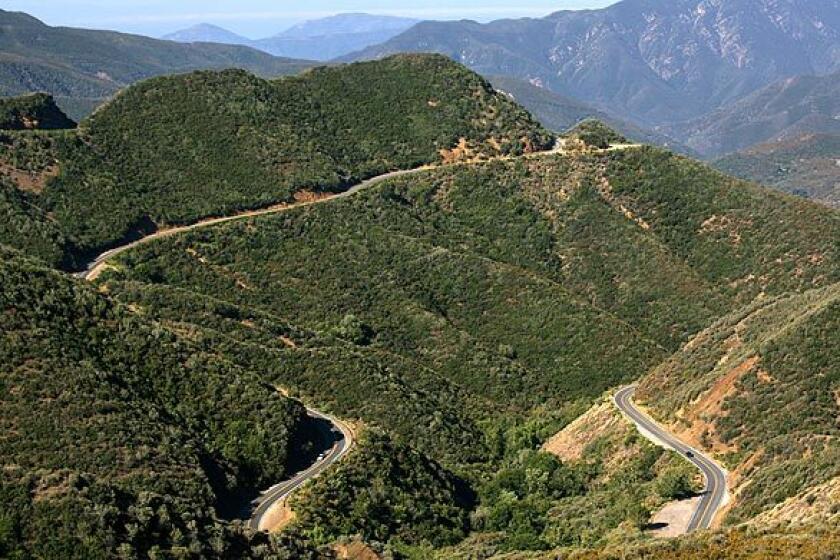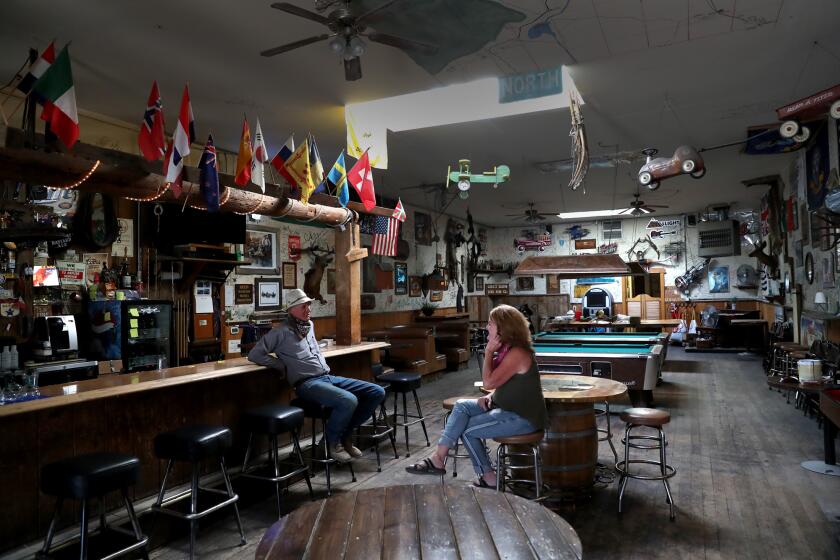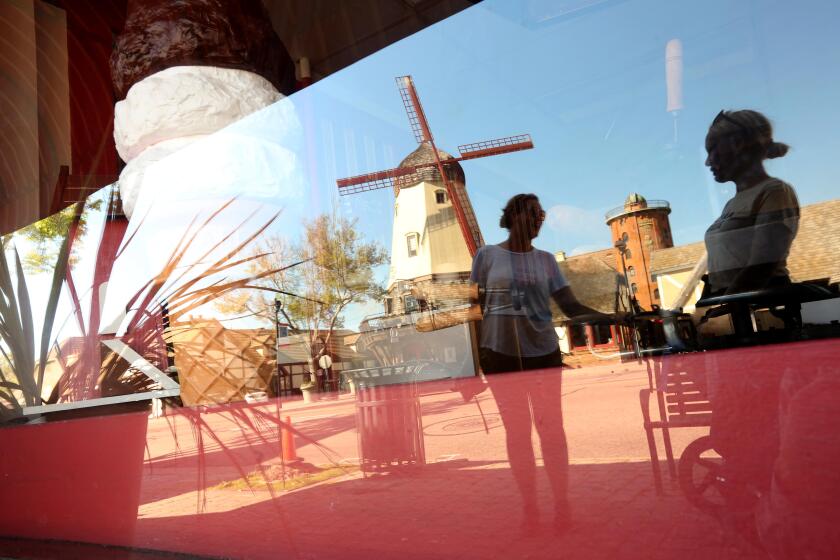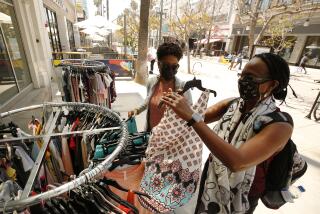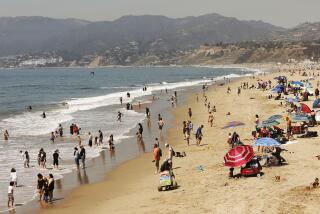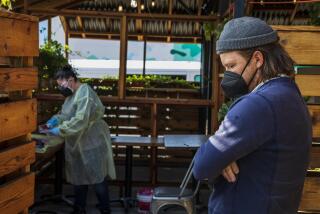Even as California reopens, some officials tell tourists to stay away
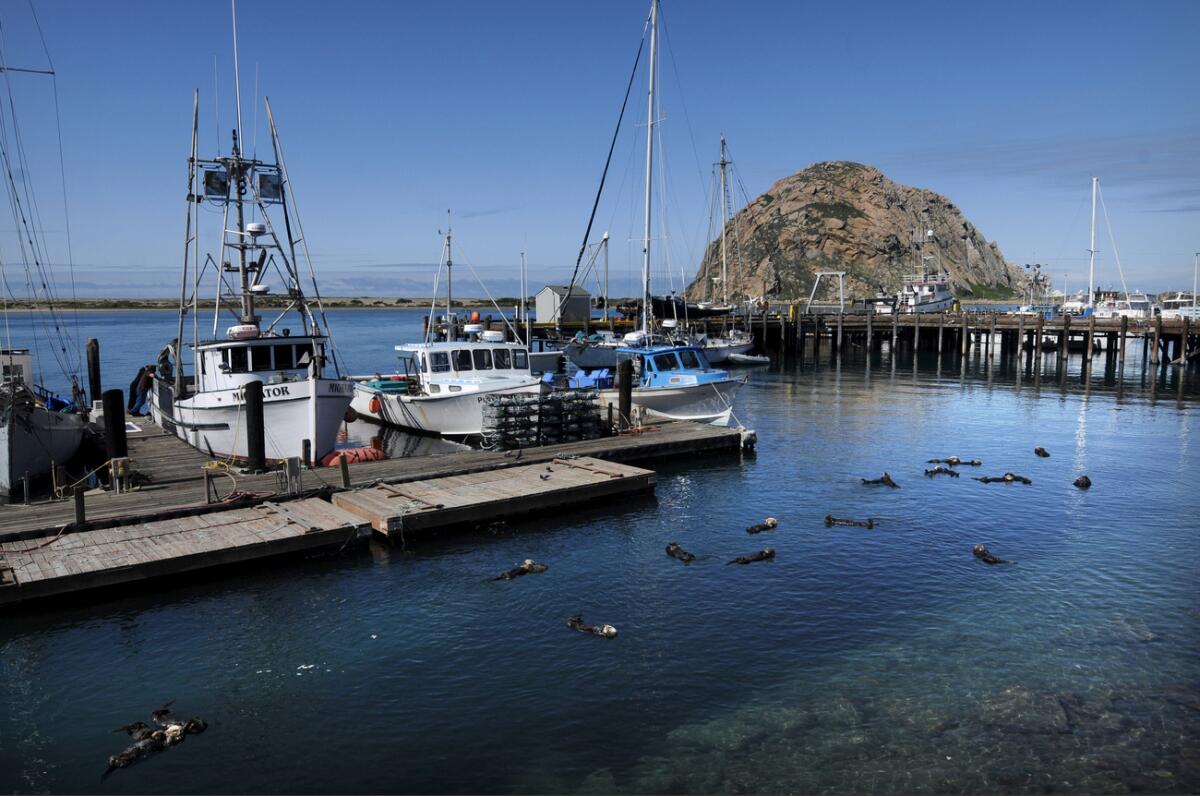
As more parts of California reopen, some officials are urging tourists to stay away — at least for now.
Dr. Penny Borenstein, San Luis Obispo County’s health officer, asked tourists to not visit as the county reopened many shops and restaurants this week.
While officials have performed “spot checks” with hotels to deter tourism, Borenstein said the county would cite visitors only in the case of “egregious violations.”
She said that before retail businesses can open their doors or restaurants can start offering dine-in service, they must perform a risk assessment, train their workers to counteract the spread of the virus and perform temperature checks on employees and, in some cases, patrons.
More than two-thirds of the state’s 58 counties have received approval to more quickly reopen their economies as coronavirus-related restrictions continue to be loosened.
Those in Southern California that have received the green light to move deeper into Phase 2 — clearing them to reopen restaurant dining rooms and more retail businesses for in-store shopping, with modifications — include San Diego, Kern, San Luis Obispo, Santa Barbara and Ventura counties, according to the state.
Local officials cheered the development, which will allow them to more broadly restart segments of their economies that have been shuttered under California’s stay-at-home order.
Other counties have expressed concern about tourists visiting and possibly bringing with them the coronavirus, especially during the Memorial Day weekend.
At least two popular areas in Southern California are closing amid increased crowds while stay-at-home orders continue to be relaxed.
Remote Alpine County urged tourists to stay away when the virus began to spread through California in March.
Dr. Richard Johnson, the Alpine County public health officer, said last month there’s no medical care to treat visitors who fall ill with COVID-19.
“There’s no way we would even have ground or air resources to get them out,” Johnson said. “It’s a dangerous assumption that you can come and look at us as a safe haven. It is an unsafe haven.”
As the coronavirus lockdown severs commerce along the eastern Sierra Nevada range, rural towns look to the future with dread.
Communities in the Lake Tahoe region, which heavily depend on tourism as well, have issued reminders before the holiday weekend warning that leisure travel is not permitted.
On its website, the city of South Lake Tahoe said that while second homeowners are now welcome, other visitors are still not. Lodging will not be available to short-term renters.
“We would love nothing more than to welcome everyone to Tahoe right now, but that’s not the safest way to bring people back to South Lake,” City Manager Joe Irvin said in a statement. “We need to be responsible and make sure we are doing our part to keep our neighbors safe and Tahoe safe while adhering to the governor’s stay at home orders.”
Solvang, Calif., with its windmills and half-timbered architecture, draws more than 1½ million visitors a year. It’s a virtual ghost town now.
As the number of coronavirus infections and related deaths plateauin the state and more of the economy reopens, many business leaders are hopeful the tourist trade will return.
Some experts have said a slow reopening of tourist spots with social distancing and other public health measures could work.
Los Angeles alone is expected to draw about 22 million fewer visitors this year and lose more than $13 billion in tourist spending because of the coronavirus outbreak.
A forecast commissioned by the Los Angeles Tourism and Convention Board estimates that Los Angeles County will draw about 29 million tourists this year, down from a pre-outbreak forecast of about 51 million.
Times staff writers Leila Miller, Hugo Martin, Jaclyn Cosgrove and Sarah Parvini contributed to this report.
More to Read
Sign up for Essential California
The most important California stories and recommendations in your inbox every morning.
You may occasionally receive promotional content from the Los Angeles Times.
